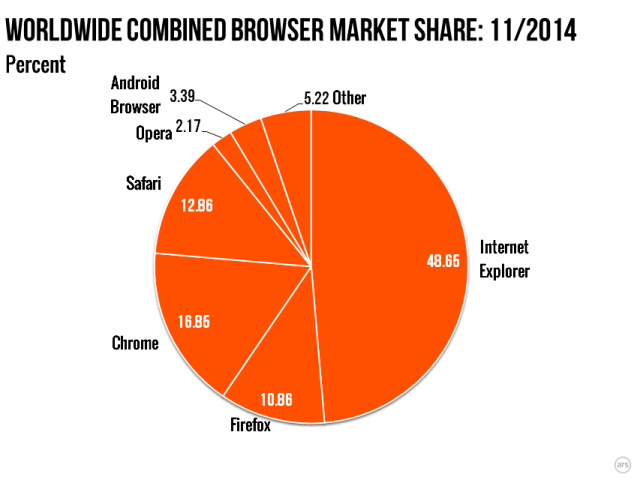
An adjustment last month showed that Windows XP's market share was quite a bit lower than previously reported. In November, its sharp decline continued, putting it well behind Windows 8.x. In the browser space, Chrome's growth took a hit, both on mobile and on the desktop.
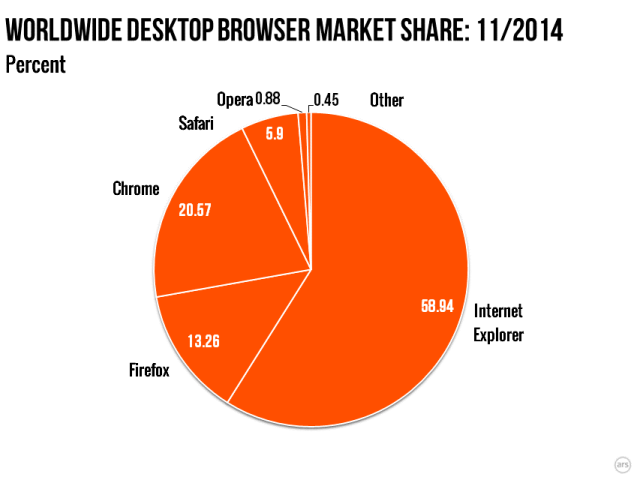
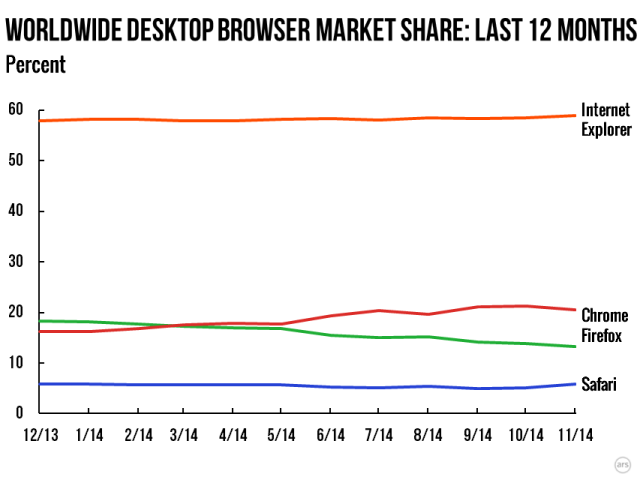
Here we see the desktop side of that dip. Chrome is down in November 0.68 points from October. Firefox dropped 0.58 points last month too. Internet Explorer is up 0.46 points, and Safari is up 0.80 points to its highest level since November 2013, when it also hit 5.90 percent.
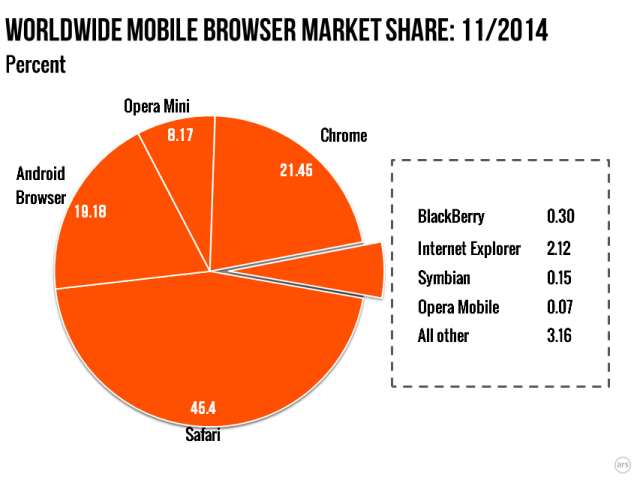
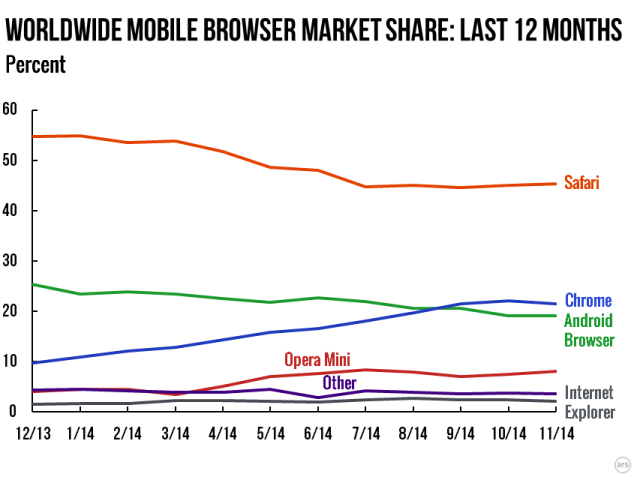
And here's the mobile side. In past months we've seen Chrome taking chunks out of Android Browser, which is to be expected given that Google has moved from using Android Browser to Chrome as the default on its smartphone operating system. After steady growth for almost two years, Chrome slipped slightly in November, dropping 0.72 points. Android Browser, meanwhile, was little changed, up 0.04 points. Safari had a stronger month, gaining 0.36 points.
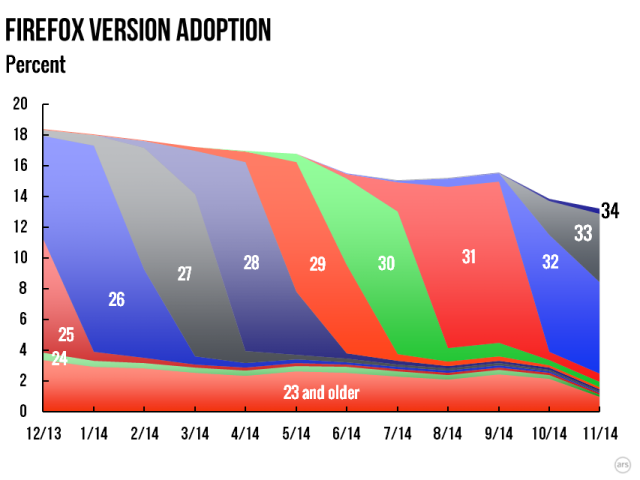
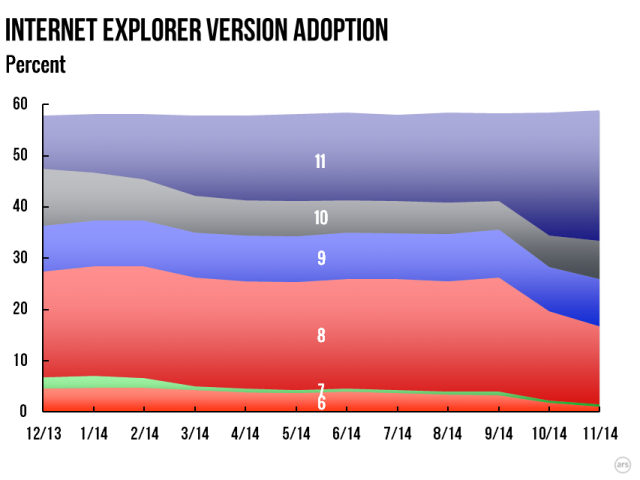
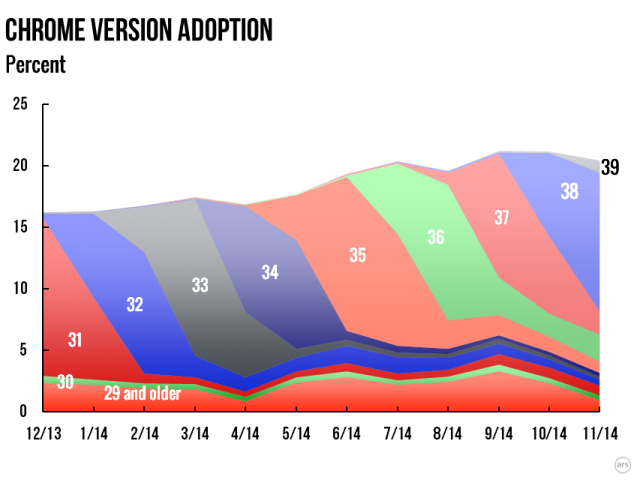
With Windows XP's market share being slashed, so too are old Windows XP-era versions of Internet Explorer. Internet Explorer 6 and 7 appear to be all but eradicated, and the (auto-updating) Internet Explorer 11 has consolidated its position as the dominant version of Microsoft's browser. Microsoft's picture still looks a bit different from Google's and Mozilla's, with their rapidly incrementing version numbers, but this isn't telling the whole story. Internet Explorer 11 today isn't the same as the Internet Explorer that was released more than a year ago; as part of a new approach to developing the browser, Internet Explorer 11 has seen functional improvements to its Web standard conformance, in addition to the expected security patches. The major version hasn't been bumped, but the browser is still undergoing changes similar in style to those of its two biggest competitors.
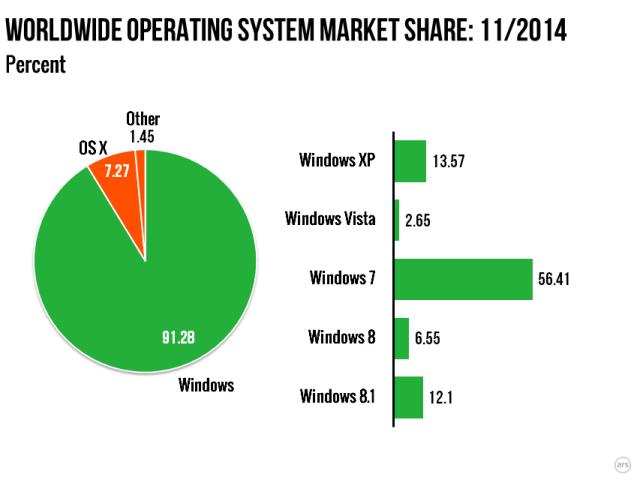
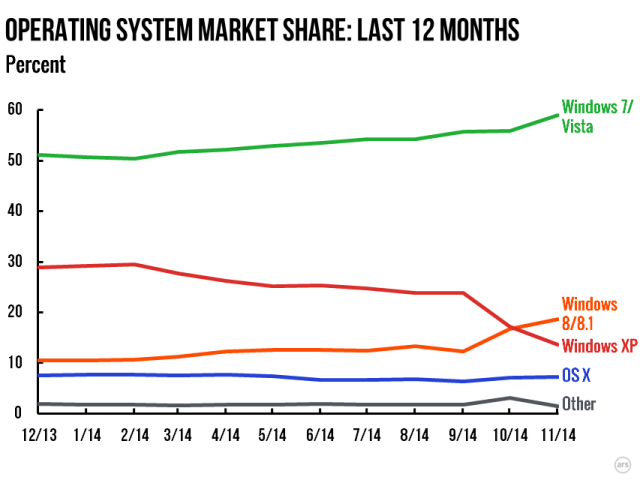
Windows XP's usage share dropped 3.61 points in November. Windows 7 and 8.x both gained 3.19 and 1.85 points, respectively. At this pace, Windows 8.x will pass Windows Vista's highest ever market share—the 19.06 percent it had just before Windows 7 was released in October 2009—next month. Given that the venom directed at Windows 8 has been, if anything, even more vicious than that shown toward Windows Vista, achieving the same share in two years as the old operating system did in three is an accomplishment of sorts.
Listing image by Aurich Lawson
reader comments
197